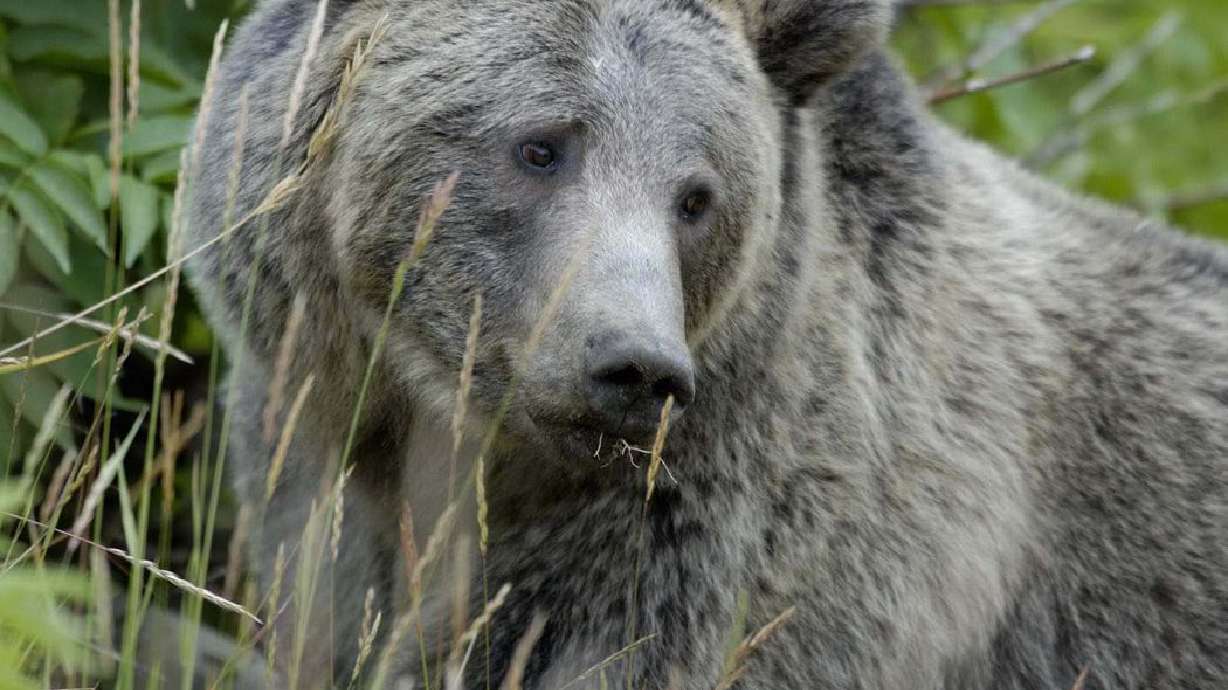Estimated read time: 4-5 minutes
This archived news story is available only for your personal, non-commercial use. Information in the story may be outdated or superseded by additional information. Reading or replaying the story in its archived form does not constitute a republication of the story.
SALT LAKE CITY — The yearslong legal standoff between the federal government and conservation groups continued this week over a Trump-era policy that allows the U.S. Fish and Wildlife Service to kill dozens of grizzly bears outside of Yellowstone National Park.
On Thursday, the Sierra Club and Center for Biological Diversity filed an appeal challenging the plan, which permits officials to euthanize up to 72 bears over the next 10 years along the Upper Green River in Wyoming's Bridger-Teton National Forest to accommodate livestock.
The potential killing of the bears is a part of a broader program to allow livestock grazing on over 260 square miles in the Green River headwaters, a plan in the works for several years and approved in October 2019, according to court filings.
In March 2020, conservation groups sued, arguing that the Fish and Wildlife Service was violating the Endangered Species Act.
The law requires the department to analyze the grazing program's risk to bear populations — it did, determining in 2019 that euthanizing 72 bears would not cause "jeopardy" to the population, according to the Sierra Club.
But the analysis requires Fish and Wildlife officials to implement conservation measures that the Sierra Club and Center for Biological Diversity say are "inadequate, largely unenforceable, and will not protect grizzly bears or livestock."
The U.S. District Court of Wyoming ruled in May that the Fish and Wildlife Service did not violate the Endangered Species Act and the plan does not threaten bear populations, an opinion the Center for Biological Diversity says "contained several legal flaws" and subsequently appealed.
"We're determined to stop this terrible plan, which could be a death sentence for dozens of Yellowstone grizzly bears," Andrea Zaccardi, carnivore conservation legal director at the center, said in a statement.
"The federal government shouldn't be killing native species so the livestock industry can graze cattle on public lands for next to nothing. We believe the court's decision was flawed, and we'll continue to fight for the lives of these magnificent bears," she said.
Conservation groups hope to receive an appellate decision before the grazing season starts in spring 2023.
The plan is the latest effort to keep the bears from killing livestock in the forests of northern Wyoming, where between 2010 to 2018 officials euthanized roughly 36 grizzlies near the Upper Green River, according to the Billings Gazette.
We believe the court's decision was flawed, and we'll continue to fight for the lives of these magnificent bears.
–Andrea Zaccardi, carnivore conservation legal director at the Center for Biological Diversity
If officials did euthanize 72 bears, it would nearly double the number of grizzlies killed in the area over the past 20 years, conservation groups allege in court filings.
Bonnie Rice, senior representative for the Sierra Club in the Yellowstone area, called that "a slap in the face to decades of recovery efforts in the Greater Yellowstone region," noting a "wide range of effective, non-lethal measures are available to livestock producers."
"The priority should be requiring and enforcing conflict prevention measures and promoting coexistence and safety for bears and people," she said in a statement.
Ranchers have long advocated for eliminating the red tape around euthanizing carnivores like grizzlies and wolves.
In 2018, a federal judge in Montana overturned a decision to declassify grizzlies in Yellowstone as threatened, according to The Associated Press, a ruling promptly appealed by officials in Montana, Idaho and Wyoming.
The three states have since petitioned to have grizzlies delisted, the most recent being Idaho in February. Ranchers and wildlife officials often contend the bear populations are healthy, and that conflicts between the massive predator and livestock are increasing.
Just last week, grizzly bears killed two pigs and four goats in northern Idaho, the Spokesman-Review reported.
"I lose, on average, 10% of my calf crop every year to grizzly bears," Coke Landers, president of the Upper Green River Cattle Association, told the Billings Gazette in May. "You take too many years of that and you can't afford it."










